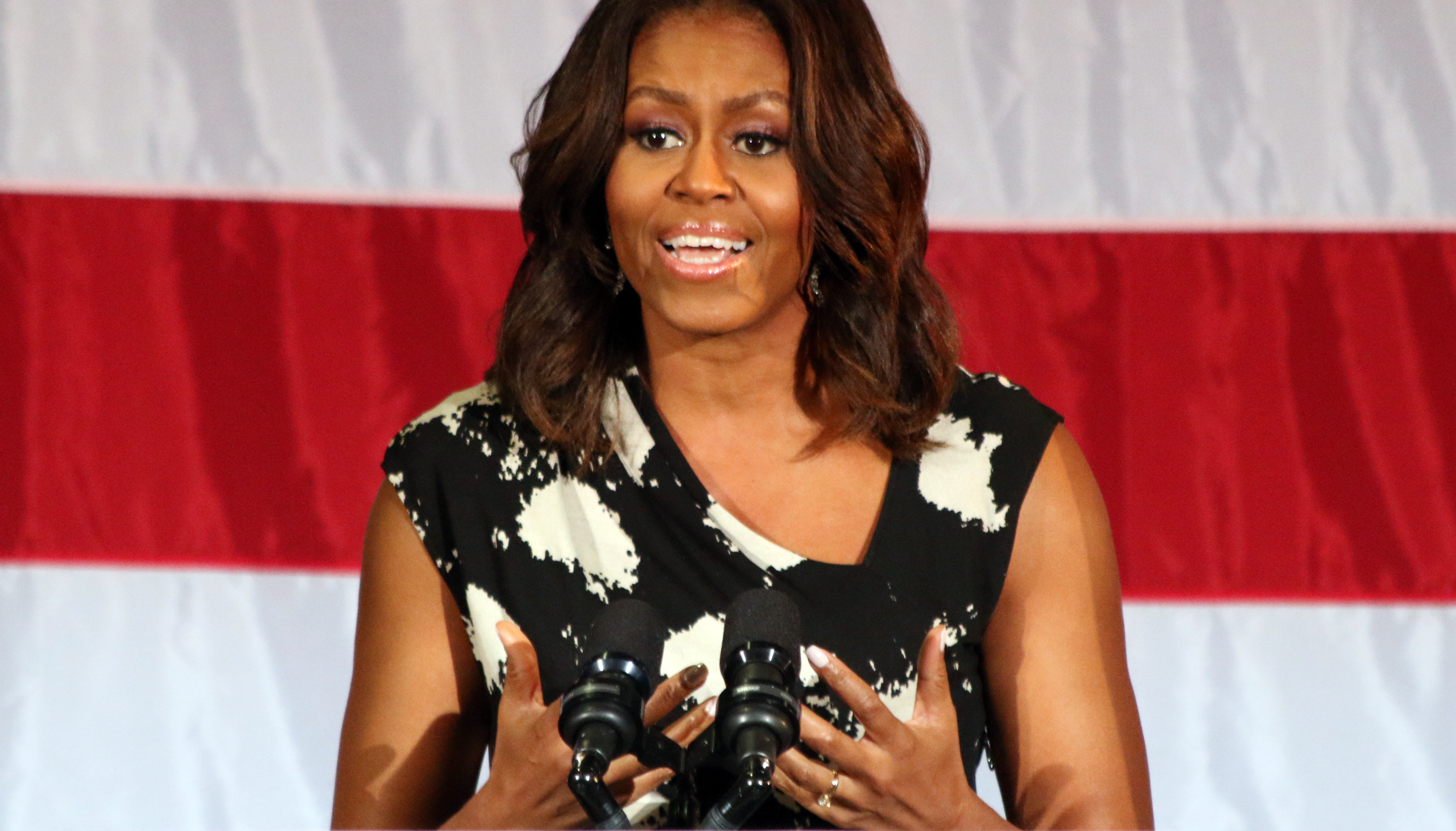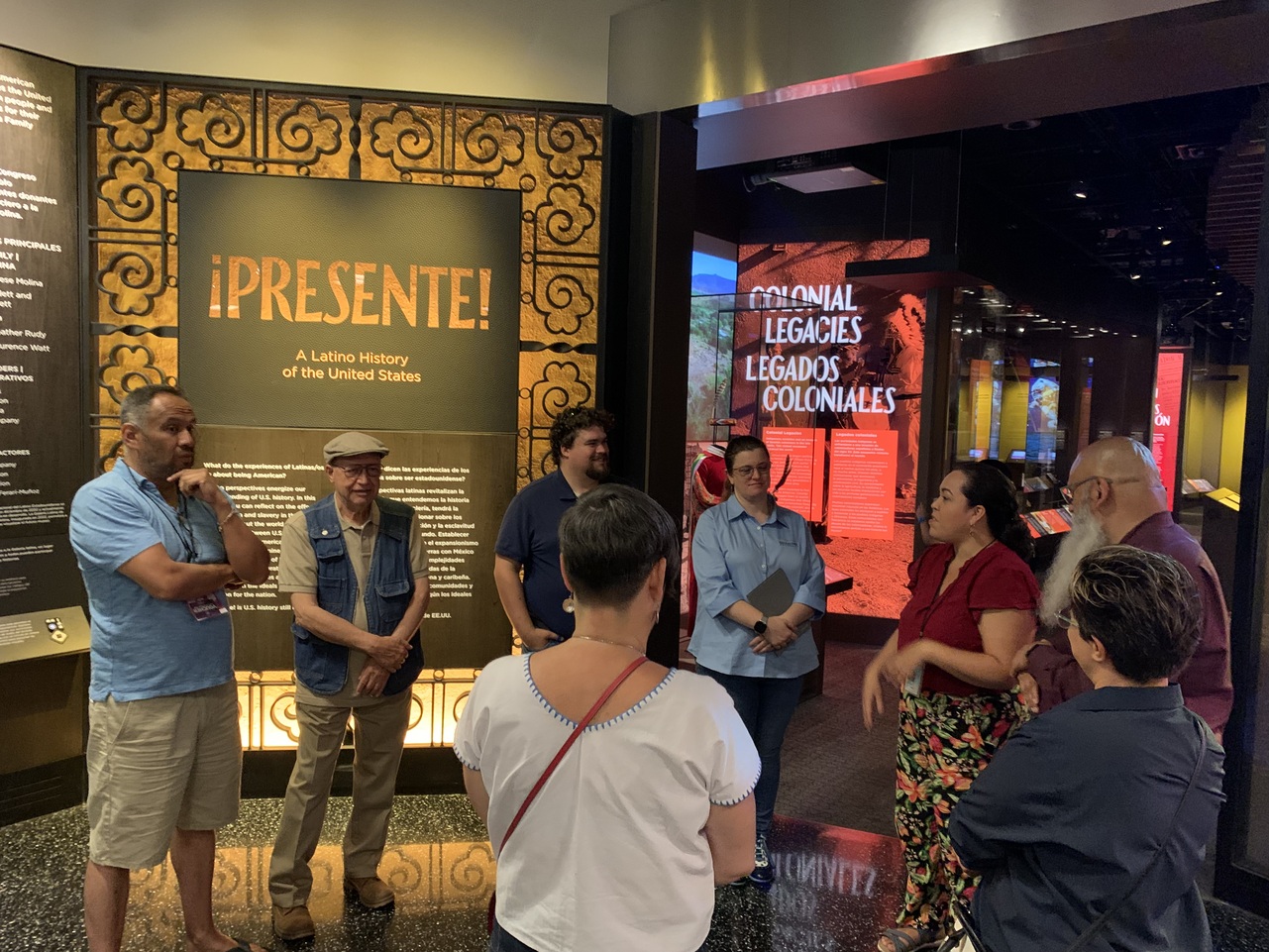
Michelle Obama addresses La Salle University
First Lady Michelle Obama wasn’t scheduled to speak at La Salle University until noon on Wednesday, September 28, but according to students and security, the eager crowd was lining up outside the arena as early as midnight the night before. Although Obama was not there on her own behalf—she is one of Hillary Clinton’s chosen campaign surrogates, and will spend the weeks leading up to the election speaking in swing states to the merits of her husband’s former rival—the excitement in the mostly young, very diverse crowd was palpable. In the Student Union, viewers cheered for a livestream as La Salle junior Ludmille Glaude introduced Obama as “the definition of Black Girl Magic.”
The speech itself echoed Obama’s earlier praises of Clinton’s work ethic, dependability, and care for children, while injecting a new sense of urgency with regard to the coming election. Obama discouraged young people from embracing a protest vote for Jill Stein or Gary Johnson, and managed to thoroughly disparage Donald Trump without ever mentioning his name. She also drew on her personal experience as First Lady to emphasize the momentous nature of the presidency.
“It is the highest stakes, most 24/7 job you could imagine,” she said, recalling some of the decisions her husband has had to make. “We know that the presidency isn’t anything like reality TV. It isn’t an apprenticeship.”
It is the highest stakes, most 24/7 job you could imagine. We know that the presidency isn’t anything like reality TV. It isn’t an apprenticeship.
Obama also warned voters not to trust that there’s more to Trump than meets the eye. “The presidency doesn’t change who you are, it reveals who you are,” Obama said. “And the same is true of a presidential campaign.” She pointed out that US presidential campaigns are nearly half the length of a presidential term, with more than enough time in the public eye for candidates to prove their mettle, or lack thereof.
The most continuously stressed point in Obama’s speech was the need to get out the millennial vote. Questions of Race, immigration and culture were mostly left out of the speech. Obama explained how her husband’s margin of victory in Pennsylvania when he ran against Mitt Romney, when divided amongst all voting precincts, came down to a margin of no more than 17 votes. Obama implored audience members to “roll up your sleeves,” and asked students to make sure not only they, but their families and neighbors are registered.
After the speech, volunteers with Hillary for America were available with clipboards for voter registration, and Katie McGinty, the Democratic candidate for the Senate, urged passersby to vote down the ballot as she smiled for cellphone photos.
Julie Shimeorski, who works in the nonprofit sector, and Rozena Nesbit, an Afro-Latina neuroscience student, were two of the women on campus for Obama’s speech. Both agreed that Obama’s presence was a good first step to “bridge the gap” between different communities of voters in Philadelphia.
The presidency doesn’t change who you are, it reveals who you are. And the same is true of a presidential campaign.
“I think this is a great time for women in general and I think this is a great time for the United States to become more of a community,” said Shimeorski.
Nesbit had a different reaction. “I believe that the way I’m seeing at this time, we’re on the precipice of changing a lot of policies that are gonna affect the African American and the Latino communities,” she said.
Nesbit said that she appreciated Obama’s emphasis on change on the level of local government, but that for Clinton to win, she would need to be more present with communities.
“She’s going to have to address gentrification, law enforcement sentiment against African American males, as well as Latino males. I see the Latino and the Black male going through some serious socioeconomic issues that can really put another stressor on their ability to feel safe within a place where they’re even homeowners, and they’re still being plagued because of stereotypes,” she said. “If [Clinton’s] campaign can hit that right there, she got it...but she’s going to have to prove that she cares.”










DEJE UN COMENTARIO:
¡Únete a la discusión! Deja un comentario.